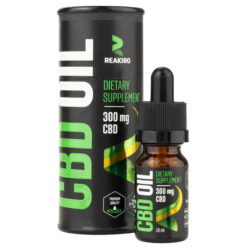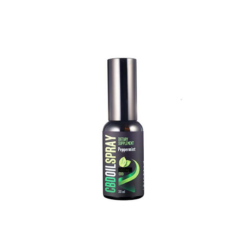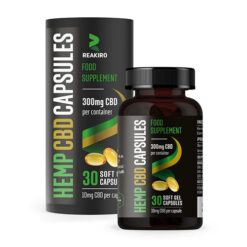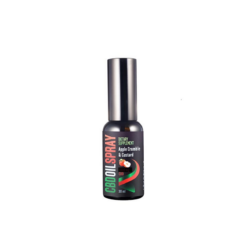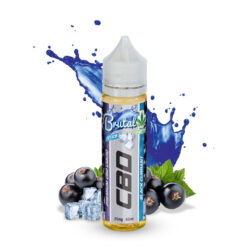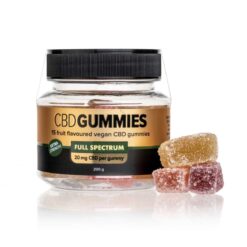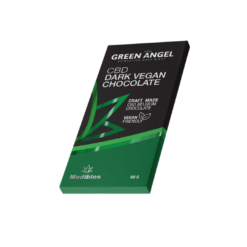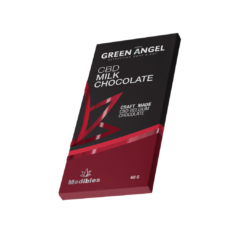Just because a product is labelled with a hemp leaf or marketed as hemp oil does not necessarily mean it contains CBD. There are many products out there “infused with hemp oil,” but the critical question is, how much CBD, if any, do they actually contain? Keep reading to discover the main differences between CBD oil and hemp oil so you can make an informed purchase.
Hemp Oil And CBD Oil: Two Different Products
There is a lot of confusion surrounding the differences between hemp oil and CBD oil. While both come from the hemp plant, they are entirely different products with distinct uses. Hemp oil, often referred to as hemp seed oil, is primarily used in cooking and beauty products. CBD oil is an oral tincture that offers a range of potential health benefits. The similarities between the two end with their source – beyond that, they serve different purposes.
Chemical Composition: What Is Inside The Products?
The quickest way to distinguish between CBD oil and hemp oil is by reading the labels and ingredients. Both products come from hemp, a specific type of cannabis plant that is high in cannabidiol (CBD) and low in THC (typically below 0.3%).
- Hemp oil: More accurately known as hemp seed oil, this product is extracted from the seeds of the hemp plant. It’s a common ingredient in cooking oils and beauty products. Some brands market their products as “hemp oil,” but if you check the ingredients, you’ll likely find it listed as “raw, organic unrefined hemp seed oil.”
- CBD oil: Unlike hemp seed oil, CBD oil is derived from the entire hemp plant or other cannabidiol-rich cannabis strains. It is made using the whole plant, not just the seeds. The active ingredient is often listed as “whole plant extract” and may be identified as CBD isolate or distillate. CBD oil tinctures typically contain a carrier oil, like MCT or olive oil. Labels may also indicate whether the oil is full-spectrum, broad-spectrum, or phytocannabinoid-rich.
Production Methods: How The Oils Are Made
The production process is another key difference between hemp seed oil and CBD oil. Hemp seed oil is produced through the cold-press extraction of hemp seeds. It usually has a dark to light green colour and a nutty flavour.
On the other hand, CBD oil is produced using more advanced extraction methods, such as CO2 extraction or solvent-based extraction, utilising the whole hemp plant. The colour of CBD oil ranges from clear to dark gold, with a neutral or earthy flavour.
CBD Content: The Crucial Difference
One of the most important distinctions between these two oils is their CBD content. Products containing CBD will typically display the amount of CBD in milligrams on the label. Since CBD oil is made using the entire hemp plant, it naturally contains high levels of CBD along with other organic compounds like phytocannabinoids and terpenes. Premium CBD oil brands often publish third-party lab results, detailing the cannabinoid and terpene profile of the product.
In contrast, hemp seed oil is a poor source of CBD. If a product does not list its CBD content, it is likely not a genuine CBD product. Although hemp seed oil may also contain trace amounts of THC, it’s not enough to produce any psychoactive effects.
Price Differences Between CBD Oil And Hemp Oil
CBD oil is significantly more expensive to produce than hemp seed oil, which is why it typically costs more. If a product claims to contain premium CBD oil but has a price that seems too good to be true, you should double-check its legitimacy. Some products made with hemp seed oil are marketed as hemp-based products, even though they don’t contain CBD. Just because a product has a hemp leaf on the package doesn’t mean it’s a CBD product.
Where To Buy Each Type Of Oil
You can find both hemp seed oil and CBD oil at pharmacies, grocery stores, online retailers, and health food shops, but they are usually sold in different sections. Reputable CBD oil brands can often be purchased online directly from the manufacturer’s website.
Hemp seed oil is commonly found in grocery stores, beauty shops, and online retailers. It’s important to read the ingredients carefully, as it’s often marketed simply as “hemp oil.” While hemp seed oil is a great source of protein and essential fatty acids, it does not provide the same benefits as CBD oil.
Different Purposes For Different Products: Uses Of CBD Oil And Hemp Oil
Because hemp oil and CBD oil are not the same, their uses vary greatly. Hemp seed oil is typically found in beauty products for hair and skincare or used in cooking. In contrast, CBD oil is primarily used as an oral tincture and is also the main ingredient in various CBD-rich products like edibles and topicals.
It’s also important to note that when people refer to “vaping CBD oil,” they’re actually talking about e-liquids containing CBD concentrate or extract. These products are specifically formulated for vaping and usually contain CBD isolate, distillate, or a water-soluble form of CBD. CBD oil tinctures are oil-based and should not be used for vaping.
Labelling: Knowing What You Are Buying
To avoid confusion, it is essential to understand the differences between hemp seed oil and CBD oil, even though both products are derived from hemp. They might share similar packaging, including a hemp leaf, and can be found in similar locations, but they serve different purposes. Always read the labels and do your research before purchasing to ensure you’re getting the product that meets your needs.
In conclusion, hemp seed oil and CBD oil are distinct products with different uses, benefits, and production methods. Hemp seed oil is a nutritious ingredient for food and beauty products, but it is not a source of CBD. If you are looking for the therapeutic benefits of CBD, make sure to choose a product labelled as CBD oil with clear information about its CBD content. Enjoy CBD products safely by purchasing from a reputable source like Cannarite.
The post Key Differences Between CBD Oil And Hemp Oil appeared first on Vaperite.


